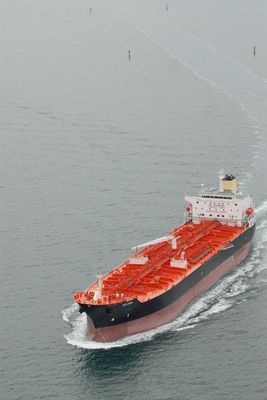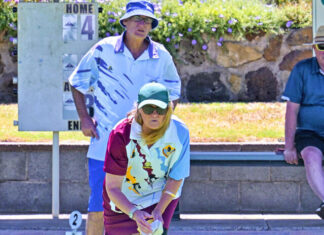The Victorian Regional Channels Authority has poured more than $18 million into channel improvements in Geelong’s port in the past two years to help roll out the welcome mat to increasingly bigger ships and larger cargoes.
The multi-million dollar improvements are part of a long-term strategy of prioritised upgrades for the VRCA’s shipping lane network in Corio Bay and are already delivering dividends in terms of port productivity and efficiency.
Authority chief executive officer Captain Peter McGovern said Geelong’s port was pivotal to the region’s economic health, making infrastructure improvements vital to ensure the shipping hub continued to thrive in the future.
“Recent research has forecast that jobs and trade in the port will grow by 50 per cent in the next 20 years,” Captain McGovern said.
“And that means infrastructure upgrades must be ongoing so the port can capitalise on any trade opportunities that arise.
“Larger ships and greater vessel numbers are heading our way and we don’t want to miss the boat when it comes to providing them with safe and efficient access and our city with the job and economic benefits that flow in their wake.”
VRCA’s upgrades include –
· More than $8 million spent dredging between Refinery Pier and Lascelles Wharf to provide more room for ships to manoeuvre around berth pockets and ease congestion. The work finished late last year.
· 2014 dredging works costing almost $10 million to widen the shipping channel at City Bend’s tight right-angle turn and deepen Corio Quay North No. 4 berth to 12.3 metres, the same depth as the channel network.
· Carrying out recent experimental rock dredging in the channel network east of Point Henry to gather important information for future dredging work.
· Adopting Dynamic Under Keel Clearance technology to allowing bulk carriers to navigate shipping lanes safely while loaded to maximum draught. System commissioning is underway.
More than 700 ships visited Geelong’s port last financial year, with the port handing 12.1 million tonnes of cargo, worth $8.4 billion.
Port won’t miss boat

Digital Edition
Subscribe
Get an all ACCESS PASS to the News and your Digital Edition with an online subscription
Finals make-up looks set with one round to go
The final four of the Geelong Bowls Region Premier Pennant competition seems set with one round to go in the final home and away...








